If you are in the fitness world and are passionate about taking care of your health, you likely use or have heard of pre-workout supplements and protein powders for men. These supplements are great for giving you energy and supplying your muscles with the nutrients they need. But what about creatine?
Effective creatine supplements can really make a difference as well when it comes to pushing yourself during a workout and seeing results. As one of the most-researched fitness supplements, bodybuilders, powerlifters, and avid gym-goers rave about creatine and how it’s an affordable and easy way to tip the scale. Keep reading to discover which brands carry the best creatine supplements we recommend you try.
Thorne Research Creatine
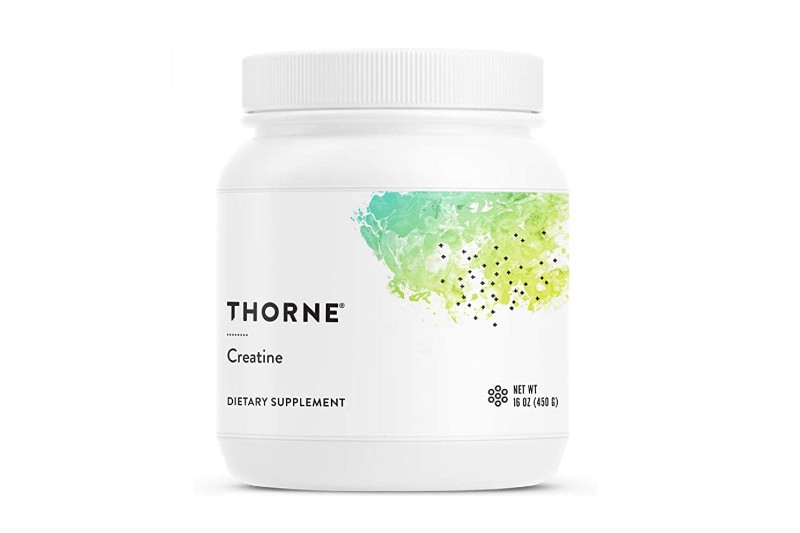
The best thing about this creatine supplement is that it’s NSF Certified for Sport, which means it’s thoroughly tested and trusted by athletes in professional sports for safety and efficacy. Thorne developed a micronized version of creatine that dissolves easily in water. It’s colorless, odorless, and packs a real punch 30-60 minutes after taking it.
| Pros | Cons |
| Good quality with no strange aftertaste
Mixes well in water, easy to use Effective, with a strong impact |
Some experience stomach discomfort after use |
Specifications
| Number of servings per container | 90 |
| Instructions for taking the supplement | Mix 1 scoop with at least 8 ounces of water, juice, or preferred beverage once daily. It can be used 30-90 minutes before or after exercise. |
MYPROTEIN Creatine Monohydrate Powder
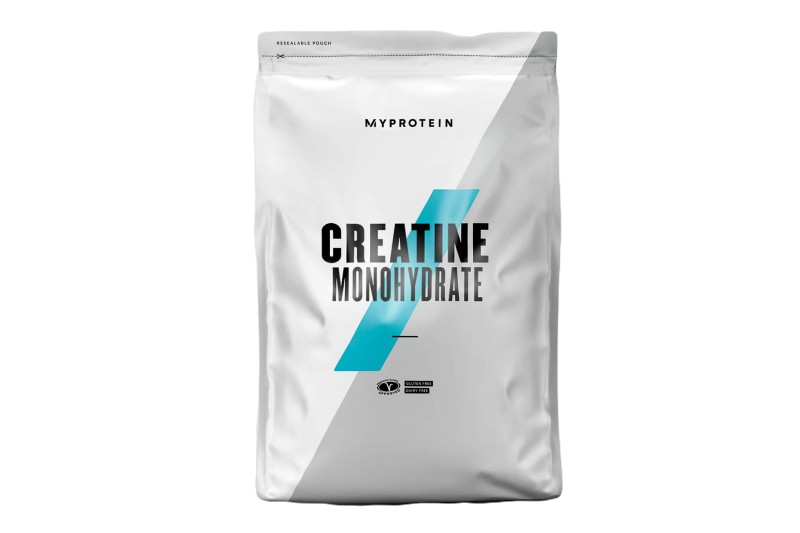
This creatine monohydrate will help take your workouts to the next level. The powder dissolves quickly and is truly tasteless. It’s high-quality creatine at an affordable price, and for that reason, it’s one of our favorites.
| Pros | Cons |
| High quality with good value for money
Dissolves well and is reliable Effective, with good creatine content |
Some customers dislike the smell and taste |
Specifications
| Number of servings per container | 100 |
| Instructions for taking the supplement | Add 1 scoop to 6-8 ounces of water. |
Onnit Creatine
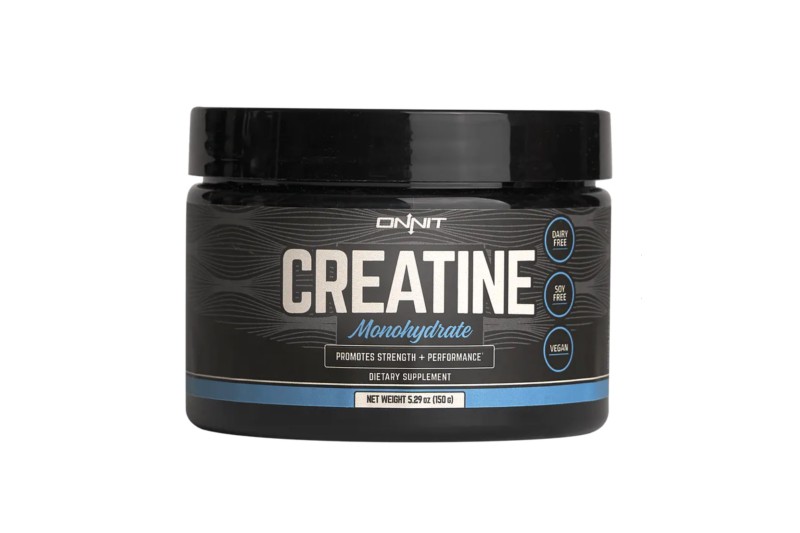
This supplement is excellently sourced and contains creatine monohydrate in micronized form provided by Creapure, which is the purest form of creatine monohydrate available on the market today. It’s extensively tested to ensure that the highest standards of quality are maintained to ensure few impurities. Onnit is known for its superior standards of supplement quality, and its creatine is no exception.
| Pros | Cons |
| Noticeable boost in endurance and performance
Effective when mixed with pre-workout supplements Highly recommended for workout enhancement |
Doesn’t dissolve well, leaving residue at the bottom |
Specifications
| Number of servings per container | 30 |
| Instructions for taking the supplement | Take up to 2 scoops per serving mixed with 8 ounces of water or your favorite drink. |
Optimum Nutrition Micronized Creatine Powder

Made with Creapure to ensure maximum purity and quality, Optimum Nutrition Micronized Creatine Powder is an excellent value for its cost and potency. The brand is known for its high-quality bodybuilding supplements, and its creatine powder is consistently ranked as one of the best.
This creatine is micronized, making the particles smaller, which not only speeds up the effects of the supplement but also saves you money since you don’t have to use as much creatine powder to get maximum benefits. Optimum Nutrition is the gold standard in fitness, and we’re fully behind their take on creatine powder.
| Pros | Cons |
| Good value, effective for muscle gain
Enhances workout performance and strength Convenient to use, with quality creatine |
Some find the capsules hard to swallow |
Specifications
| Number of servings per container | 150 |
| Instructions for taking the supplement | Consume 2 capsules with a meal. |
EFX Sports Kre-Alkalyn EFX
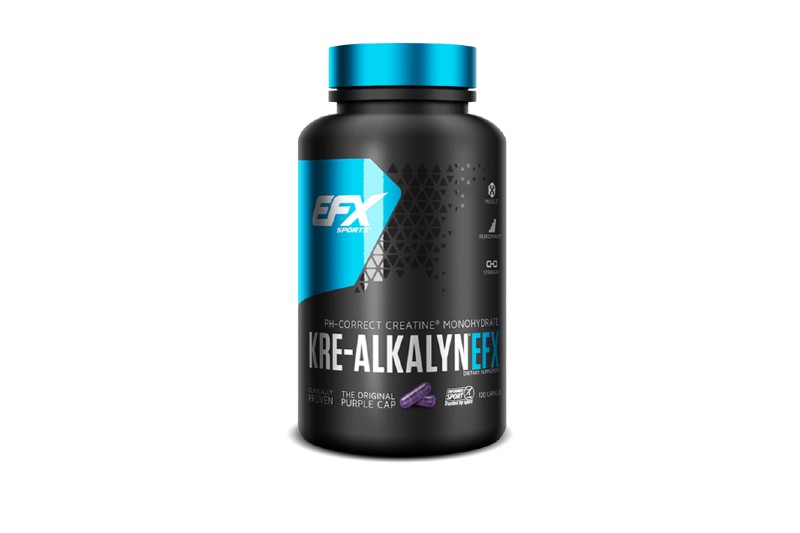
This is not your standard creatine powder. While most products on this list contain creatine monohydrate, this product uses Kre-Alkalyn, which is a patented form of creatine invented by Dr. Jeff Golini, Ph.D., who created it to be at the “correct” alkaline level of pH 12. The product claims not to require load or cycle phases, which is a common practice among men who use creatine powders.
The benefits are similar to using normal creatine monohydrate, and many users reported a reduction in bloat, which sometimes occurs with traditional creatine. Since water retention is reduced, you can even use Kre-Alkalyn while trying to burn fat.
| Pros | Cons |
| Effective for muscle growth and strength gains
Dramatically boosts workout performance and energy Good investment, with no bloating reported |
Contains some undesirable additives |
Specifications
| Number of servings per container | 120 |
| Instructions for taking the supplement | Take 2 capsules daily – 1 pre-workout and 1 post-workout. |
MUSCLE FEAST Creapure Creatine Monohydrate Powder
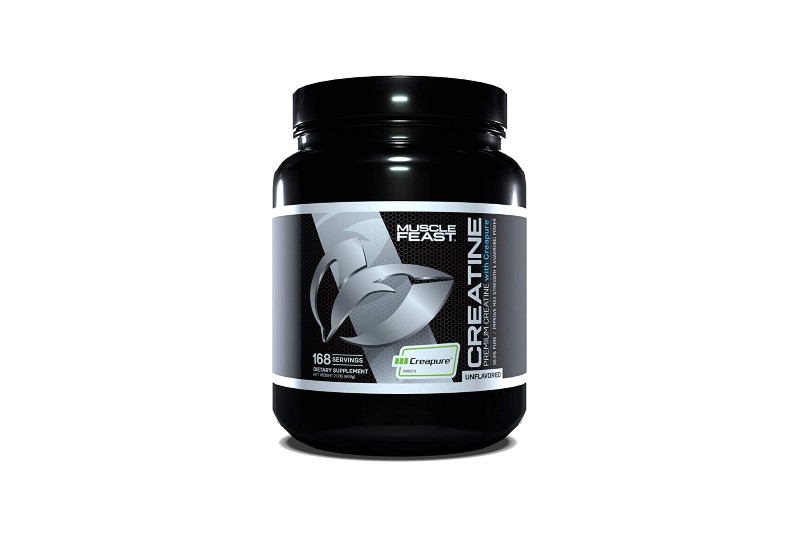
MUSCLE FEAST is a favorite of athletes and bodybuilders competing at the highest level of their sport. It consistently ranks highest in purity on Labdoor, an independent supplement-testing company. They also use Creapure as their trusted source of creatine, which means this product is regularly tested for banned substances.
If you’re looking for a creatine supplement that doesn’t taste like you’re drinking chalk, this supplement comes in four flavors: unflavored, fruit punch, grape, and blue bomb.
| Pros | Cons |
| High quality with a pleasant taste
Blends well with any beverage, no taste Effective for muscle growth and performance |
Mixed opinions on value for money and dissolving ease |
Specifications
| Number of servings per container | 55 |
| Instructions for taking the supplement | Mix 1 serving with 8 ounces of water or a beverage of your choice. Take 1-3 times per day. |
NAKED Nutrition Pure Creatine
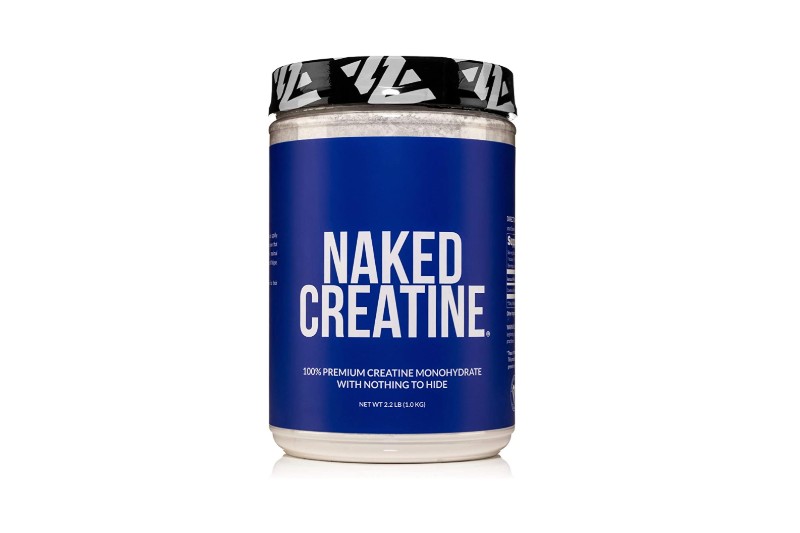
The name says it all: This is 100% pure micronized creatine monohydrate that is made of the highest quality. Naked Creatine is certified vegan, dissolves rapidly in water without leaving any sugar/salt crystals in the bottom of the glass, and doesn’t contain any additives or sweeteners. It’s as pure as you can get and incredibly affordable for the price you pay.
| Pros | Cons |
| High quality with great taste and value
Dissolves well with no taste or smell Strong creatine quality appreciated by users |
Mixed opinions regarding potential stomach upset |
Specifications
| Number of servings per container | 200 |
| Instructions for taking the supplement | Mix 1 scoop into 14-16 ounces of water. |
Frequently asked questions

What are the benefits of taking creatine?
While the body naturally produces small amounts of creatine, supplementing it can have advantages. When taken daily, creatine can improve athletic performance, allowing you to push yourself harder during your workouts and see results quicker. Many people experience increased muscle mass, energy levels, and cognitive function as well. While more research needs to be done, some claim that creatine can help with bone health and reducing the risk of certain diseases.
What is the most popular form of creatine?
Users tend to find mixing powdered creatine into liquids is an easy way to take the supplement. Specifically, creatine monohydrate is taken the most often, as it is the most studied form and tends to yield the best results. Creatine monohydrate is great for those wanting to increase muscle mass, workout capacity, and intensity.




